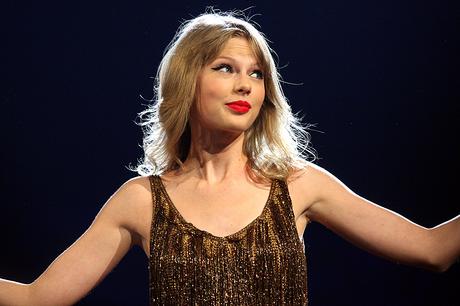
Taylor Swift
Hi, my name is Karla, and I have been a die hard Swifty for as long as I can remember. I pre-ordered all of Swift’s albums, We Are Never, Ever Getting Back Together was one of my favorite shower songs, I’ve cried ceaselessly to Dear John while in the midst of boy troubles (and, um, every time I hear it), and I could kick your butt at I Knew You Were Trouble karaoke. But I have re-evaluated my feelings toward the singer this year after examining her behavior — specifically, her persistent tendency of perpetuating white feminism.
White Feminism does not describe all feminists that happen to be white, but rather describes a version of feminism that assumes white (and almost always cisgender, straight, able-bodied, thin, middle-to-upper class) women are the default. Doing so actively avoids critical analysis of issues of inequality on any axis other than gender and therefore ignores the complex experiences of the many women who occupy multiple other identities.
Perhaps the most obvious example of the way Swift perpetuates this ideology is through her depictions of her “squad.” Taylor seems to think that her loyal group of friends embodies the very definition of feminism — that it models the importance of women sticking together for the sake of women’s rights. The problem is, though, that Swift’s “squad” is about as shallow a representation of feminism as you could possibly get. As Jill Filipovic wrote in The Washington Post, feminism is “more than just supporting your girlfriends and churning out charming catchphrases about girl power.”
In addition to the mere acknowledgment that women should support other women serving as a shallow understanding of feminist values, I have a problem with Swift’s squad itself. I don’t know about you, but when I look at pictures of Taylor’s “girl squad,” I don’t see myself or any of my friends. The members of Swift’s mini-sorority almost universally adhere to stereotypical understandings of beauty and are overwhelmingly white. What’s more, young girls who look up to Swift could eventually believe that this is what an ideal group of girlfriends should look like, which further perpetuates a great deal of body issues and insecurities among a great numbers of girls who do not and cannot identify with anyone represented in Taylor’s “squad.” Modeling an all-inclusive, intersectional feminism — the kind of feminism we need to see displayed today from women in positions of power, like Taylor — means moving beyond a feminist movement designed for and perepuated by the able-bodied, Anglo-Saxon, cis straight women who like at home on magazine covers.
It’s also vital to examine Swift’s past microaggressive behavior towards people of color. Take the recent shade that Swift so calculatingly served during her acceptance speech for Album of the Year. “I want to say to all the young women out there: There are going to be people along the way who will try to undercut your success or take credit for your accomplishments or your fame,” Swift said.
This clear jab at Kanye West, who claims to be the reason for her success in his latest track “Famous,” revealed a larger issue: This comment, which was perceived as a victorious “clapback” by many, ignores Swift’s privilege as a white celebrity. Because she is a straight, cisgender, able-bodied, stereotypically beautiful white woman, she is afforded a type of widespread influence and forgiveness for her actions that’s often inaccessible for equally famous, if not more renowned, peers who occupy marginalized identities. While West may certainly be in the wrong for the sexism apparent in his lyrics regarding Swift, Swift has also undeniably built notoriety and influence off this narrative — the same one from which she has asked to be excluded. What’s more, while it was her right to do so, Swift’s supposed decision to approve of West’s lyric “me and Taylor might still have sex line,” while disapproving of “I made that bitch famous” line hardly feels like a true decision in the name of feminism as much as it seems like evidence of a moment in which feminism was not as convenient for Swift as the publicity that the song would produce.
Although Kanye West’s sexist lyric is unacceptable, his misogynistic behavior does not give Swift a pass for failing to check her own privilege as a white woman. Instead of applauding her influence, we should acknowledge that her words often only empower a certain demographic and should also examine how much influence we grant to women like Swift.
Ultimately, this is not about Taylor Swift herself, but about what she represents. Her accomplishments, regardless of how deserving they may be, are a glaring reminder of the societal and economic benefit of whiteness and white femininity. Her triumphs are celebrated while her contradictory behavior often remains overlooked. The type of “girl power” feminism Swift promotes and represents is not enough. We must account for the various, unique forms of oppression all women face.

